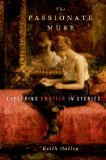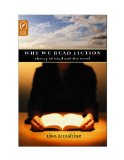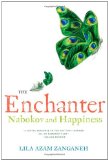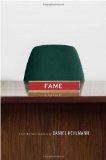February 27, 2012

The Passionate Muse: Exploring Emotion in Stories by Keith Oatley (Oxford University Press, USA, 2012)
(amazon.co.uk – May 2012)
Book description from the publisher:
The emotions a character feels–Hamlet’s vengefulness when he realizes his uncle has killed his father, Anna Karenina’s despair when she feels she can longer sustain her life, Marcel’s joy when he tastes a piece of madeleine cake–are vital aspects of the experience of fiction. As Keith Oatley points out, it’s not just the emotions of literary characters such as these in which we are interested. If we didn’t ourselves experience emotions, we wouldn’t go to the play, or watch the film, or read the book. In The Passionate Muse, Oatley, who is both a prize-winning novelist and a distinguished research psychologist, offers a hybrid book that alternates sections of an original short story, “One Another,” with chapters that illuminate the psychology of emotion and fiction. Oatley not only provides insight into how people engage in stories, he also illuminates the value of emotion and the importance of stories for our psychological well-being. Indeed, he offers evidence that the more fiction we read, the better is our understanding of others. Through fiction, we come to know more about the emotions of others and ourselves.
See also: Author’s website
Comments (0)
- cognitive science,fiction,new books,psychology
July 27, 2011

Why We Read Fiction: Theory of Mind and the Novel by Lisa Zunshine (2006) doesn’t appear to be part of the soon-ending “Big Deal” kindle book sale, but currently has a digital list price of $1.99. (Compare to Amazon’s price of $20.67 for the paperback edition.)
(amazon.co.uk – £1.43 on kindle)
Product description from the publisher:
Why We Read Fiction offers a lucid overview of the most exciting area of research in contemporary cognitive psychology known as “Theory of Mind” and discusses its implications for literary studies. It covers a broad range of fictional narratives, from Richardson’s Clarissa, Dostoyevski’s Crime and Punishment, and Austen’s Pride and Prejudice to Woolf’s Mrs. Dalloway, Nabokov’s Lolita, and Hammett’s The Maltese Falcon. Zunshine’s surprising new interpretations of well-known literary texts and popular cultural representations constantly prod her readers to rethink their own interest in fictional narrative. Written for a general audience, this study provides a jargon-free introduction to the rapidly growing interdisciplinary field known as cognitive approaches to literature and culture.
See also: Author’s homepage
Comments (0)
- fiction,psychology
July 26, 2011

Such Stuff as Dreams: The Psychology of Fiction by Keith Oatley (Wiley 2011)
(kindle ed.), (amazon.co.uk)
Product description from the publisher:
Such Stuff as Dreams: The Psychology of Fiction explores how fiction works in the brains and imagination of both readers and writers.
Demonstrates how reading fiction can contribute to a greater understanding of, and the ability to change, ourselves
Informed by the latest psychological research which focuses on, for example, how identification with fictional characters occurs, and how literature can improve social abilities
Explores traditional aspects of fiction, including character, plot, setting, and theme, as well as a number of classic techniques, such as metaphor, metonymy, defamiliarization, and cues
Includes extensive end-notes, which ground the work in psychological studies
Features excerpts from fiction which are discussed throughout the text, including works by William Shakespeare, Jane Austen, Kate Chopin, Anton Chekhov, James Baldwin, and others
From the back cover:
When we read fiction, we mentally create events and scenes from the words offered on the page by the author. Why is this such a pleasurable experience?
Such Stuff as Dreams: The Psychology of Fiction explores how fiction works in the brains and imagination of both readers and writers. Drawing on an idea originally developed by a variety of historical literary figures including William Shakespeare, in this ground–breaking work Oatley richly illustrates how fiction is not simply a slice of life, pure entertainment, or an escape from everyday reality. While it does indeed incorporate many of these elements, at its core fiction represents a guided dream, a model that readers construct in collaboration with the writer. This waking dream not only enables us to see ourselves and others more clearly, but offers us revealing glimpses beneath the surface of the everyday world.
The book considers topics such as fiction’s ability to create vividly emotive experiences; issues of empathy and identification; creativity and externalizations of the mind utilized by writers of prose fiction; and the various effects of fiction on individual readers. Throughout the book, excerpts from fiction are also featured and discussed, including works by William Shakespeare, Jane Austen, Kate Chopin, Anton Chekhov, and James Baldwin. Informed by deep scholarly rigor, Such Stuff as Dreams is an illuminating and thought–provoking analysis of the transformative power of fiction to enter and engage the mind into revealing profound insights about ourselves and those around us.
See also: New Scientist review, Author’s Psychology Today blog
Comments (0)
- fiction,new books,psychology,reading
May 29, 2011

Thanks to 3quarksdaily for pointing me to this title via the Guardian interview with the author: The Enchanter: Nabokov and Happiness by Lila Azam Zanganeh (W.W. Norton & Co., 2011)
(kindle ed.), (amazon.co.uk)

Product description from the publisher:
Discovering happiness in reading the work of an extraordinary writer.
The protagonist of Vladimir Nabokov’s The Gift playfully dreamed of writing “A Practical Handbook: How to Be Happy.” Now, Nabokov’s own creative reader Lila Azam Zanganeh lends life to this vision with sly sophistication and ebullient charm, as she shares the delirious joy to be found in reading the masterpieces of “the great writer of happiness.”
Plunging into the enchanted and luminous worlds of Speak, Memory; Ada, or Ardor; and the infamous Lolita, Azam Zanganeh seeks out the Nabokovian experience of time, memory, sexual passion, nature, loss, love in all its forms, and language in all its allusions. She explores Nabokov’s geography-from his Russian childhood to the landscapes of “his” America-suffers encounters with his beloved “nature,” hallucinates an interview with the master, and seeks the “crunch of happiness” in his singular vocabulary. This beautifully illuminated book will both reignite the passion of experienced Nabokovians and lure the innocent reader to a well of delights as yet unseen. 12 black-and-white illustrations
See also: Author’s website
Comments (0)
- fiction,happiness,new books
October 17, 2010

This is the first time I’ve come across a book with “Kindle for the Web” enabled so I can embed the first chapter right here. (Note the full-screen option in the center of the title bar.) The book is ‘Fame: A Novel in Five Episodes’ which the San Francisco Chronicle reviewer today called “a rare and thrilling example of a philosophical novel as pleasurable as it is thought-provoking.”
(link for amazon.co.uk)
Comments (0)
- fiction,new books








